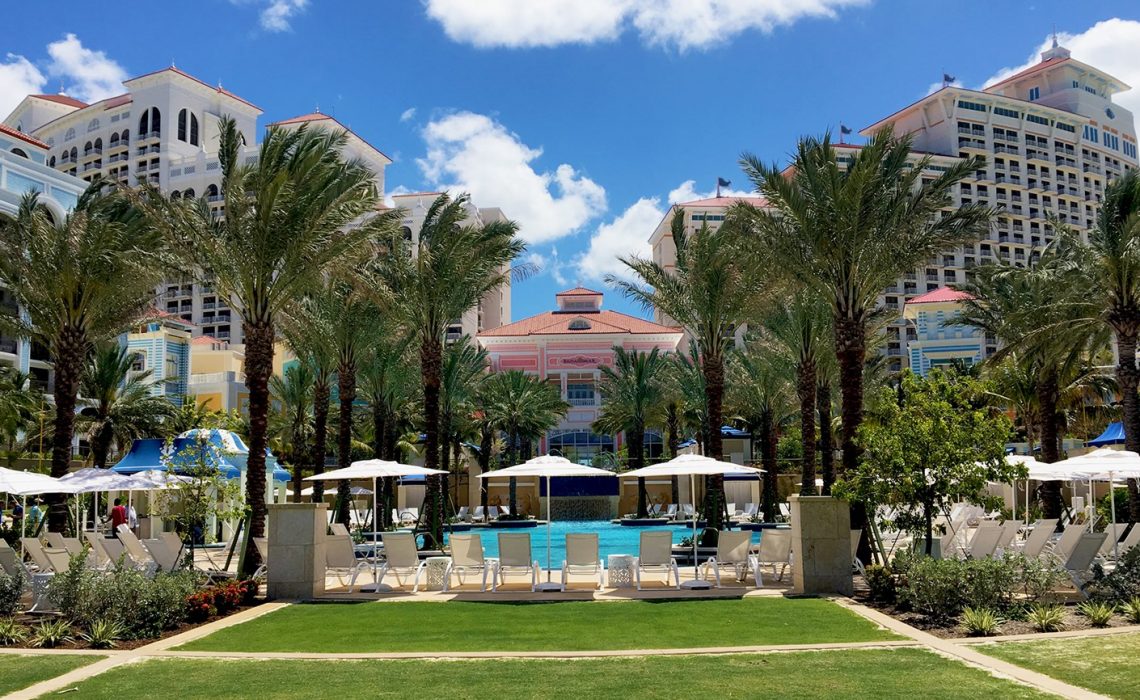
You might also like:
With powerful Hurricane Irma approaching, Caribbean resorts faced a dilemma: Evacuate guests or hunker down and provide them with shelter?
Baha Mar, the new Bahamas megaresort near Nassau, chose to order its guests to evacuate while two competing resorts nearby, the Melia Nassau Beach and the Atlantis Paradise Island, remained open. In fact, Atlantis not only sheltered some 1,200 guests but also opened its doors to hundreds of locals, according to Atlantis president Howard Karawan.
Though he never called out his competitor by name, Karawan appeared to allude to Baha Mar last week when he said, “It is during times like these that we see it as our moral responsibility to support the community as best as we can, not close our doors on them.”
He added that many of Atlantis’ restaurants remained open during the storm.
Evacuation experts, however, said the decision to remain open or evacuate is rarely clear-cut.
George Haddow, a former deputy chief of staff at the Federal Emergency Management Agency, said that in addition to questions about the level of on-site training, the ability for a hotel to generate power during a storm can be a factor.
Topography can also come into play, as can the fact that a hurricane’s path is unpredictable. As a result, two resorts relatively near each other can be dealing with different risk factors, said Susan Cutter, director of the Hazards and Vulnerability Research Institute at the University of South Carolina.
“Atlantis is close to the water, but it may not have the same [storm] surge action as Baha Mar,” Cutter said. “Baha Mar is right on Goodman Bay, which has that kind of concave feature that may funnel some of the water a bit more.”
The Grand Hyatt Baha Mar shut down on Sept. 7, saying that “guest services will resume as soon as it is safe for our guests and associates to return.” The hotel reopened on Sept. 12. (The Grand Hyatt is currently the only hotel operating at the resort. The SLS and Rosewood aren’t open yet).
“There were no guests in the hotel, as most volunteered to leave early prior to evacuation,” Hyatt spokeswoman Shea Oliver said. “All went home and not to any shelters of any kind, as they left early.”
She also said, “The team at Baha Mar and Grand Hyatt Baha Mar took every precaution and determined that because the island was within the projected path of one of the most severe hurricanes in recorded history, the best course of action was to take action while there was still time and safely evacuate all of our guests from the island. We worked with every in-house guest to support the rebooking of flights, arranged transportation and assisted with their travel needs.”
Nassau and the entire island of New Providence was largely spared from the storm and actually welcomed evacuation flights from other parts of the Bahamas. Both the 694-room Melia Nassau Beach, which is about a quarter-mile west of Baha Mar, and the 3,400-room Atlantis Paradise Island, about 8 miles east, reported that no storm-related damage had been sustained.
Given that the Melia did not evacuate, however, Bahamas tourism officials implied that one issue in the evacuation decision might have been Baha Mar’s layout and the fact that its convention center is not physically attached to any of the hotels.
“To close the hotel and not be faced with the liability of moving people from the hotel to the convention center is what motivated that decision,” Bahamas Tourism Minister Dionisio D’Aguilar told the Bahamas Tribune. “They need to address that issue moving forward.”
Regardless, Haddow said such decisions increase in magnitude for island locations because visitors don’t have the opportunity to simply drive away from the storm.
“When Katrina hit New Orleans, the hotels just threw [guests] out, and they ended up in the Superdome,” said Haddow. “New Orleans is like the Bahamas. People don’t drive there, they fly. So, if you want to get out, you have to get on a plane.”
Sоurсе: travelweekly.com
